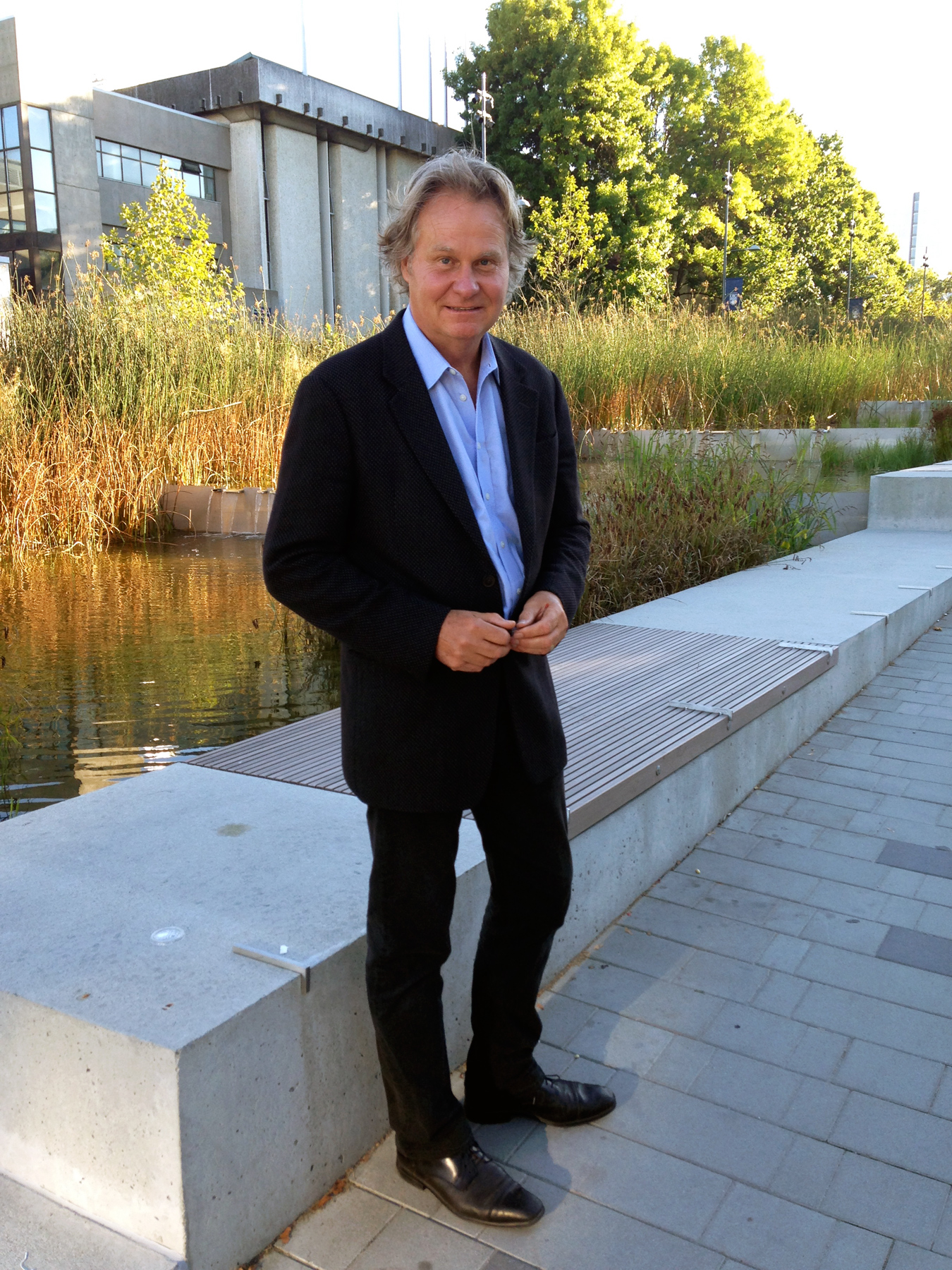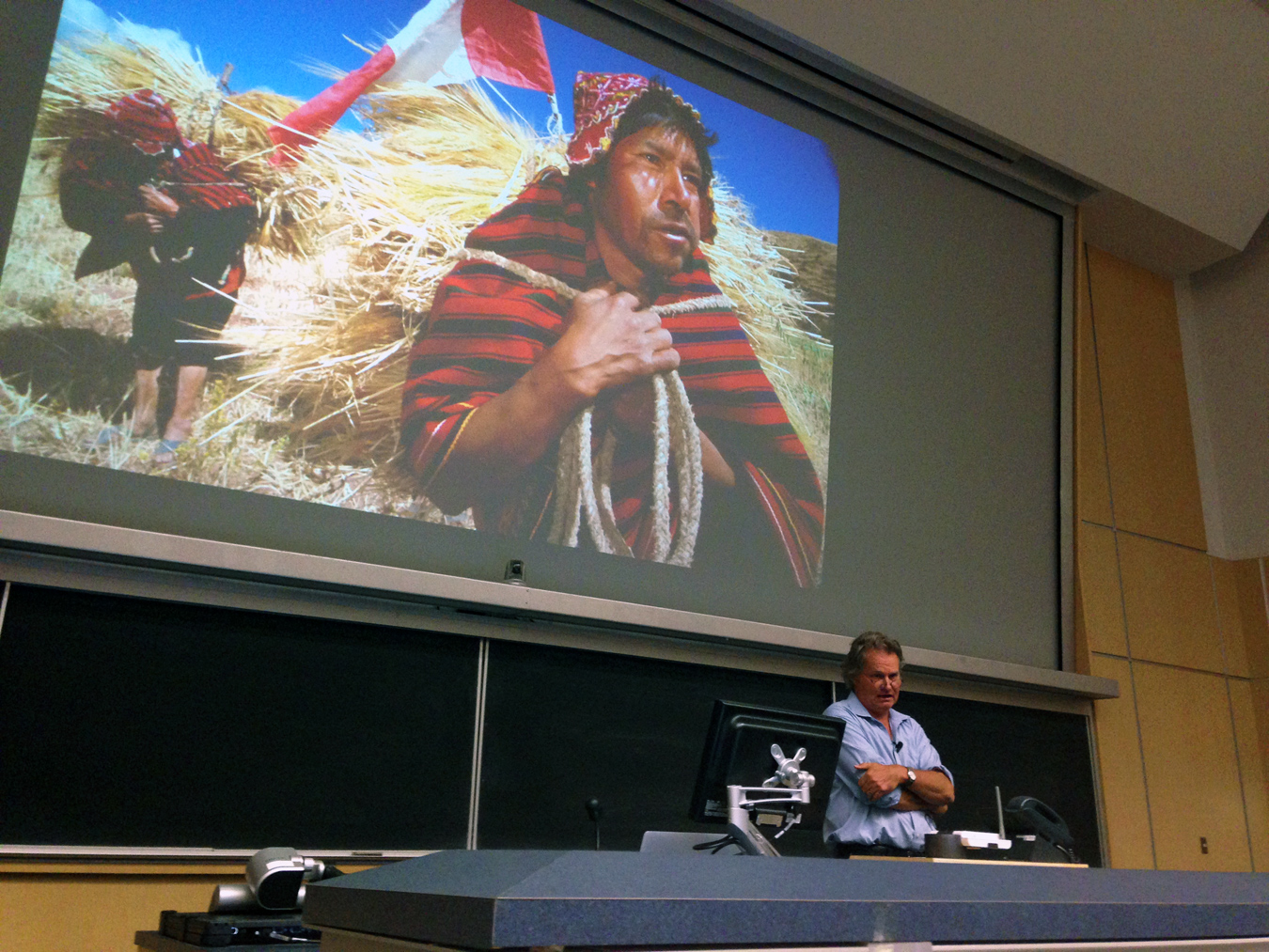-

Wade Davis at the University of British Columbia.
-

Inside the Anthropology 100 classroom at the University of British Columbia.
-

Wade Davis begins his Anthropology 100 lecture.
The Teachings of Wade Davis
Paradigm shift.
“Your first obligation as a student is to fill your eyes with wonder.” Wade Davis—professor of anthropology, former explorer-in-residence at the National Geographic Society, author of 17 books and counting—has the full attention of an auditorium of students at the University of British Columbia. They have come in droves to partake in his inaugural undergraduate class for the university, Anthropology 100: Introduction to Anthropology. “The idea today is not to take notes,” he instructs, “but to accept that the social world that we live in does not exist; it is just one model of reality.”
Davis is flanked by a team of graduate and doctoral students who serve as his teaching assistants, as well as his daughter, Raina (another adventurer in the family), who is helping her father while she awaits work placement in the Middle East. With their help, Davis will help students acquire the tools they need to play what he calls “an active role in the reinvention of our world.”
Images from his travels flit across the screen: faces of tribesmen and women, lush green jungle landscapes, mountain villages shrouded in snow, and ceremonial rituals performed fireside, among others. There is an emphasis on the Amazon, the place Davis landed after he closed his eyes and touched his finger to a map of the world as a young student. The presence of Wade Davis the explorer is not lost on these students, but here he is approachable and humorous. He is a protector, a fighter, an activist, and a voice enticing the next generation to carry on exploring.
“Ponder the arc of civilization as a farce. Imagine a world where ‘thank you’ is not needed because everything is shared,” he says. He challenges his students to examine the units by which Western civilization has measured its success: progress, and the notion that new must equal improvement. “But what if everything in our world stayed the same?”
He speaks frequently of the power of the human spirit, the importance of preserving world languages, and explains how race is utter fiction; genealogists can trace all of humanity’s origins to Africa, a lesson he details further in his CBC Massey Lectures book The Wayfinders: Why Ancient Wisdom Matters in the Modern World. Call it a textbook for those eager to partake in the curriculum, without enrolling in the course. He pairs this revelry with content set to stun—how violence can be socialized as a norm. “In one tribe prone to spearing raids, the natural death rate was estimated to be around only two per cent,” he says. “One of the fellows was so old and they observed him to be old, so they speared him to death anyway.” Students are amused, but Davis is quick to point out Western naiveté too, telling a tale of Evangelical missionaries who landed on a riverbank in Ecuador to bring Christ to the Waorani tribe. They brought ice cream cones, a yo-yo, and a copy of TIME magazine. “Conversion is a tricky thing,” Davis echoes.
With these stories, Davis aims to leave his students with an appreciation for human diversity, for the ethnosphere, his word for the sum of all thoughts, beliefs, myths, and institutions brought into being by the human imagination. “Seek to understand. Seek to discover. Seek to preserve. Seek to maintain,” he says. “Every culture on earth is a unique answer to a fundamental question: what does it mean to be human and alive?”
Photos by Kimberly Budziak.




